BLITZ INTERVIEW: "I’m afraid that if a missile hits our building, I won’t have time to shield my daughter with my own body."
Olesia Ostafiieva was nine months pregnant when Russia invaded. And bombed her maternity hospital. She has written a book about her flight to the West to give birth and her return to Ukraine.
(Olesia Ostafiieva with her book “Kira. The Way Back Home”)
Where are you from? And where are you now? Doing what?
I have just finished my book called “Kira. The Way Back Home”, about my flight from Ukraine in March 2022, nine months pregnant, giving birth in New York and returning home with Kira, my baby, in the summer of 2022. We went through 12 countries, 25 cities, and 13,000 kilometers.
I was born in eastern Ukraine, in Donetsk. I earned my higher education there and moved to Kyiv after university, where I have lived for most of my life—except for seven months at the beginning of the full-scale invasion when I was forced to leave because I was nine months pregnant. (Her daughter’s father had to stay in Ukraine, for work reasons.)
Circumstances led me to move between several countries. Initially, I went to the United States, where my friends lived.
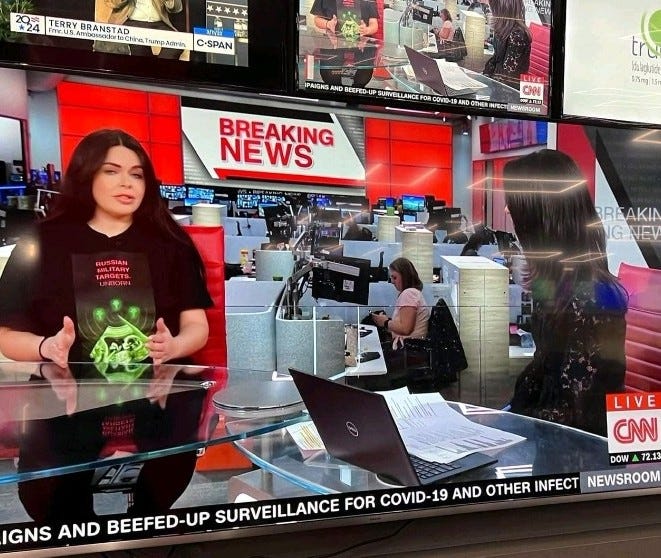
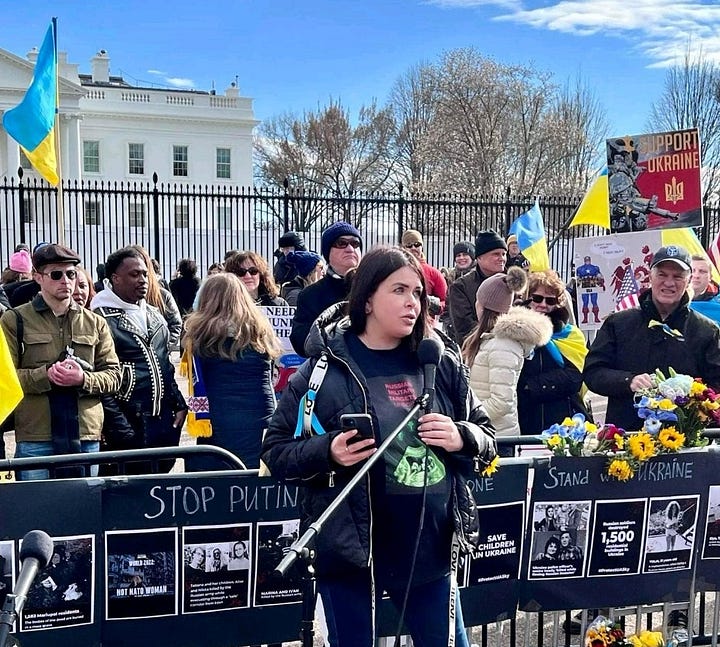
(A pregnant Olesia on CNN, March 2022/video and speaking in front of the White House)
Later, in May 2022, after my parents managed to escape occupation and arrived in Poland, I returned to Europe with my one-and-a-half-month-old daughter. We lived in Poland, Albania, and Italy.
In September 2022, my daughter, my parents, and I returned to Kyiv, and I couldn’t be happier about it.
I am an entrepreneur and journalist. Currently, I am the editor-in-chief of a technology media covering the Ukrainian IT sector. And I also own a small bar in the center of Kyiv, called “The Witch Bar”😉(in Ukrainian “Lysa Hora”)
(Olesia and Kira on their way home, Summer 2022)
What kind of studies and work did you do previously? Where?
I earned my degree in Ukrainian language and literature education in Donetsk. However, I started my career in journalism, working for business publications before transitioning into PR.
Currently, I manage several professional roles—I run my own business, serve as an editor at a media outlet, and work as a media consultant specializing in crisis PR.
Over the years, I have also obtained an economics degree and completed a business education program for women leaders at a Swiss business school.
How has the war in Ukraine changed your life? And you personally?
In March 2022, I experienced a profound shock because I was someone who always planned everything in advance - especially when it came to childbirth. And then, in a single moment, everything collapsed. I could no longer plan beyond a single day.
On top of that, I had been professionally successful, but all my contacts and income were tied to Kyiv. We had to close our bar, and my PR clients stopped working with me. I felt like I had lost everything and had to start from scratch—with a newborn. It was an enormous stress, and I decided to do everything possible to rebuild what I had in Kyiv.
Today, I work three to four times more than I did before 2022 to maintain my standard of living and save money. The war instilled in me a fear that I might have to start over again, so I know the importance of having financial reserves.
The war taught me that I cannot control everything and that I need to accept when plans fall apart. But it also showed me that everything can be lost in an instant, and I need to be prepared with a Plan B. And most importantly, it reminded me not to postpone life - to spend more time with my child and cherish the present.
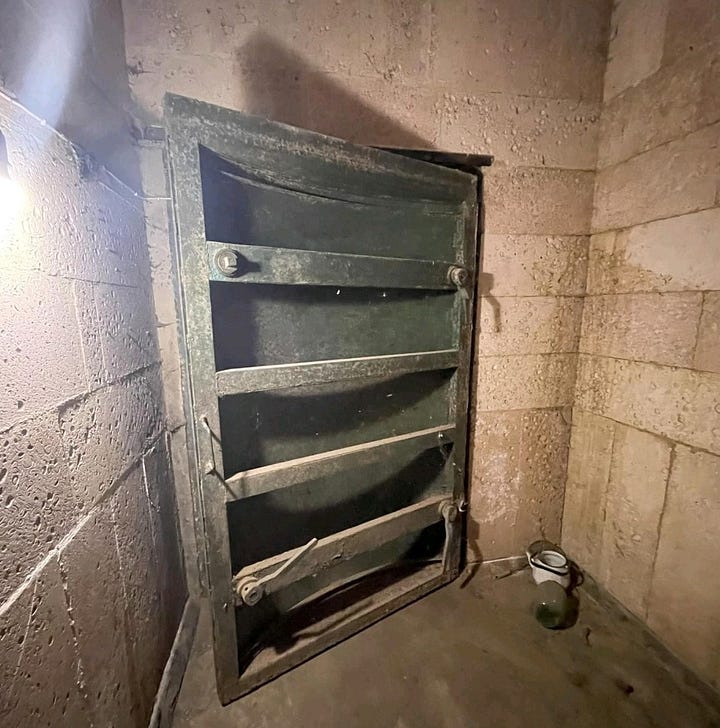
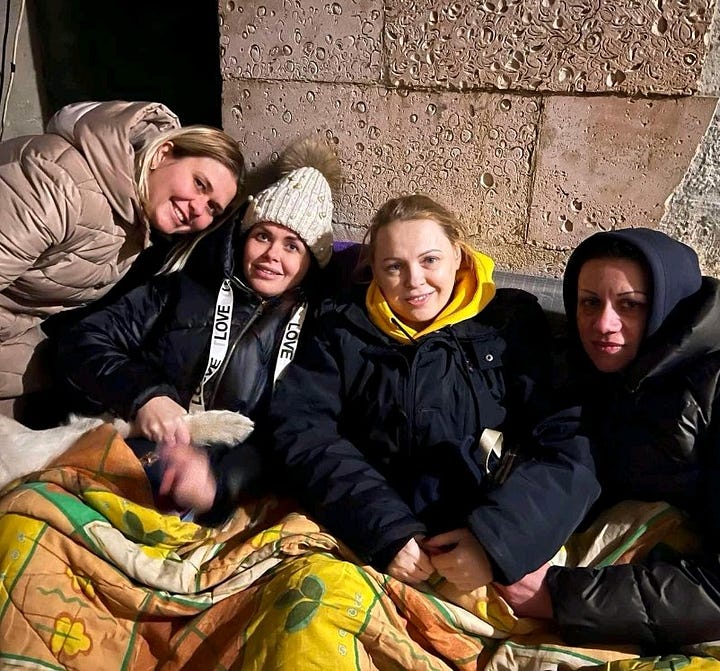
(Olesia and neighbors in the bomb shelter in Kyiv, March 2022)
What has surprised you most about Ukrainians these past couple of years? Good or bad?
Ukrainians have shown incredible resilience and a deep will to live. I’ve seen it firsthand through the stories of many friends who accomplish the impossible every single day. In every country I visited, people told me the same thing - that in the first months of the war, we united the world around us through our fight and our example of unbreakable spirit.
That’s the good part. The bad part is that while we know how to come together against major challenges, we often become divided by internal conflicts, and some focus on politics when it’s not the time for it.
The same applies to individuals - some have amazed and inspired me, while others have been disappointing. Ironically, those who once called themselves the greatest patriots were the first to leave the country, while the more humble ones took up arms to defend us.
What are your future plans?
I plan to live in Ukraine, have children here, and build a business here.
How do you see the war ending and Ukraine returning to a ‘normal life’?
This is a complex question.
Ideally, I would like to say that all our lands must return to Ukraine, that Russians must leave my native Donetsk, and that Russia must pay reparations to rebuild our country. That would be the perfect outcome.
But looking at the current situation, I understand that this is more of a dream than a reality.
For me, ending the war now means achieving peace that is acceptable to the soldiers who have sacrificed themselves for three years. This would mean a justice that acknowledges Ukraine’s role in protecting Europe, which also faces military threats. It means securing strong military alliances that make it impossible for the war to continue and ensuring that other nations support Ukraine’s economic and infrastructural recovery.
Tell us one thing you don’t think people abroad know about Ukraine – but they really should?
The civilized world is used to Israel’s example—a country that has lived in a state of permanent war for years, with air raid sirens, bomb shelters, and mandatory military service. But in reality, this doesn’t significantly disrupt civilian life.
That’s why many people I’ve met assume that, for us, war simply means losses on the front lines. But they are genuinely surprised when they learn that we have no commercial flights or that any trip to Europe requires an extra three days by train or car. They are shocked when I show them a video from my bedroom—where my child is sleeping while explosions echo in the background.
It is truly dangerous here. And yet, we have chosen to stay in this country because we desperately want to preserve it—to protect our land, sustain our economy, and secure a future for our children.
My child is three years old and still sleeps in my bed. Recently, a friend of mine who lives in another country told me I was making a mistake - that I should have moved my daughter to her own bed when she turned one. And for the first time, I admitted it out loud: the issue isn’t that she wouldn’t sleep alone - she would. The issue isn’t her. The issue is me.
I’m afraid that if a missile hits our building, I won’t have time to shield her with my own body.
I think the world—especially those far removed from this war - needs to understand these daily fears and challenges.
Yesterday, nine children were killed, in Kryvyi Rih. And I don’t know how their parents will go on living with that pain. That is my greatest nightmare.
(“Kira. The Way Back Home” by Olesia Ostafiieva is soon out in English / information. Olesia donates her book royalties to the Ukrainian charity “Voices of Children.”)







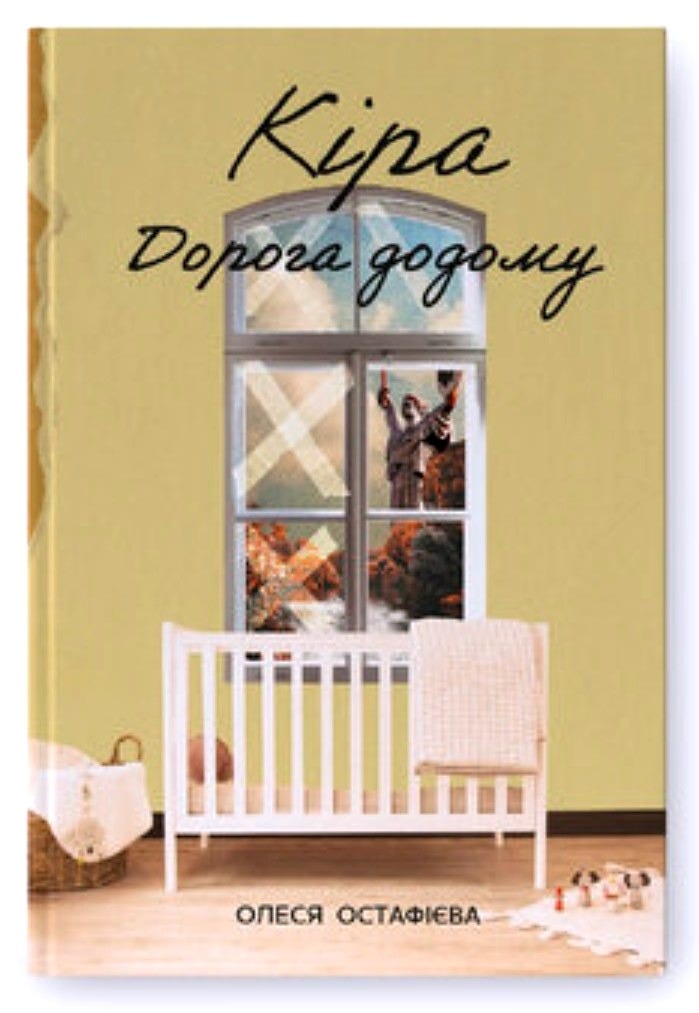
Keep it coming. We can’t have too many of these personal stories. I follow Tim Mak as well.
Excellent, thank you.